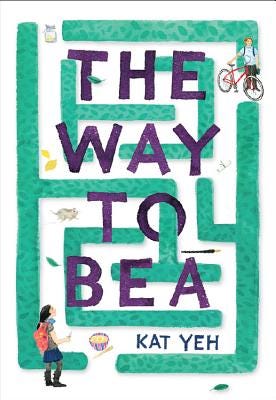'The Way to Bea': A coming-of-age friendship story
Kat Yeh's lovely novel trails a young poet through the headwinds of middle school.
This post contains an affiliate link or links. If you use a link to buy a book, I may earn a small commission. You can find all the books that have been featured in this newsletter in my Bookshop store.
Truth be told, I was going to write about a different book this week. But I haven’t finished forming my thoughts about it, and in the meantime, I stopped by the library and spotted Kat Yeh’s “The Way to Bea” on the giveaway cart. I took it home as a sort of mental palate cleanser. And I’m glad I did.
Beatrix Lee is Taiwanese American, but that’s not as important to the story as her being a poet or brand new to middle school. And that’s a good thing. She’s presented in all of her human complexity as the only child of two creatives who are currently so immersed in meeting deadlines — comics for Dad, painting and a due date for Mom — that she sometimes doesn’t see them for a day or two. As a result, Bea has way more freedom right now than your typical middle schooler. But of course, right now is when she could really use some parental guidance.
After spending the summer in Taiwan, Beatrix returned to Long Island to find that her longtime friend group had rearranged itself: The three other girls are now hanging out with her best friend’s new stepsister, who thinks Bea is weird. It doesn’t help that Beatrix makes this discovery only after making an exuberantly dramatic entrance into a pool party where seemingly half the middle school has gathered.
So Bea spends her first month of middle school making herself as invisible as possible. School has become a maze she often gives up trying to navigate; instead, she sneaks outside at lunchtime to walk a nearby path. There, she composes haiku, a poetic form she finds soothing because of its simple, clear structure.
Poetry leads her to Will, a boy whose mannerisms she finds odd at first. While I instantly recognized Will’s neurodivergence, Bea sees only a boy who has a very specific way of communicating and relating to other people. He tells her about his current ambition: to somehow get access to a labyrinth on a nearby gated estate. Will really likes labyrinths, which he explains to Bea are not the same as mazes. In a maze, you’re constantly going down blind alleys and reaching dead ends. In a labyrinth, you have one simple, clear path.
Bea likes that. One simple, clear path. She likes it a lot.


